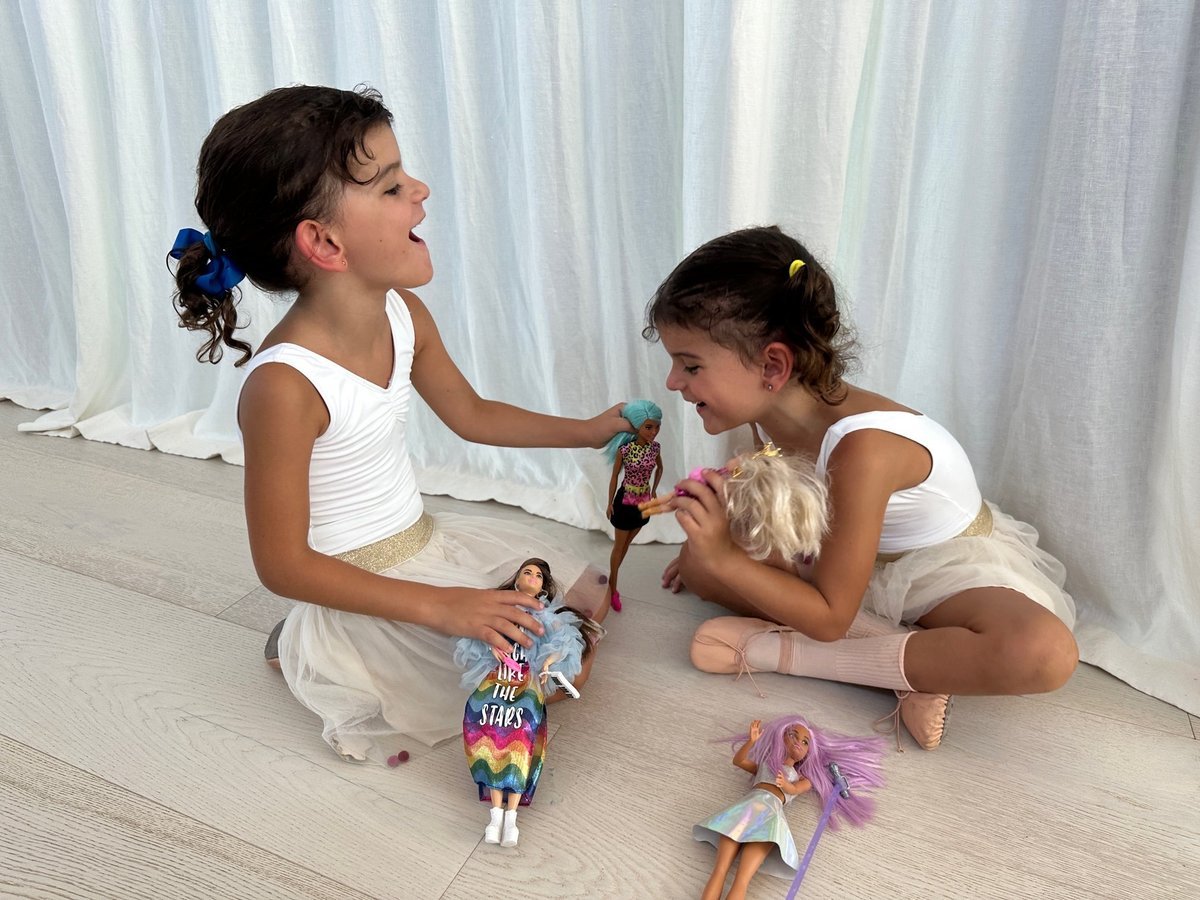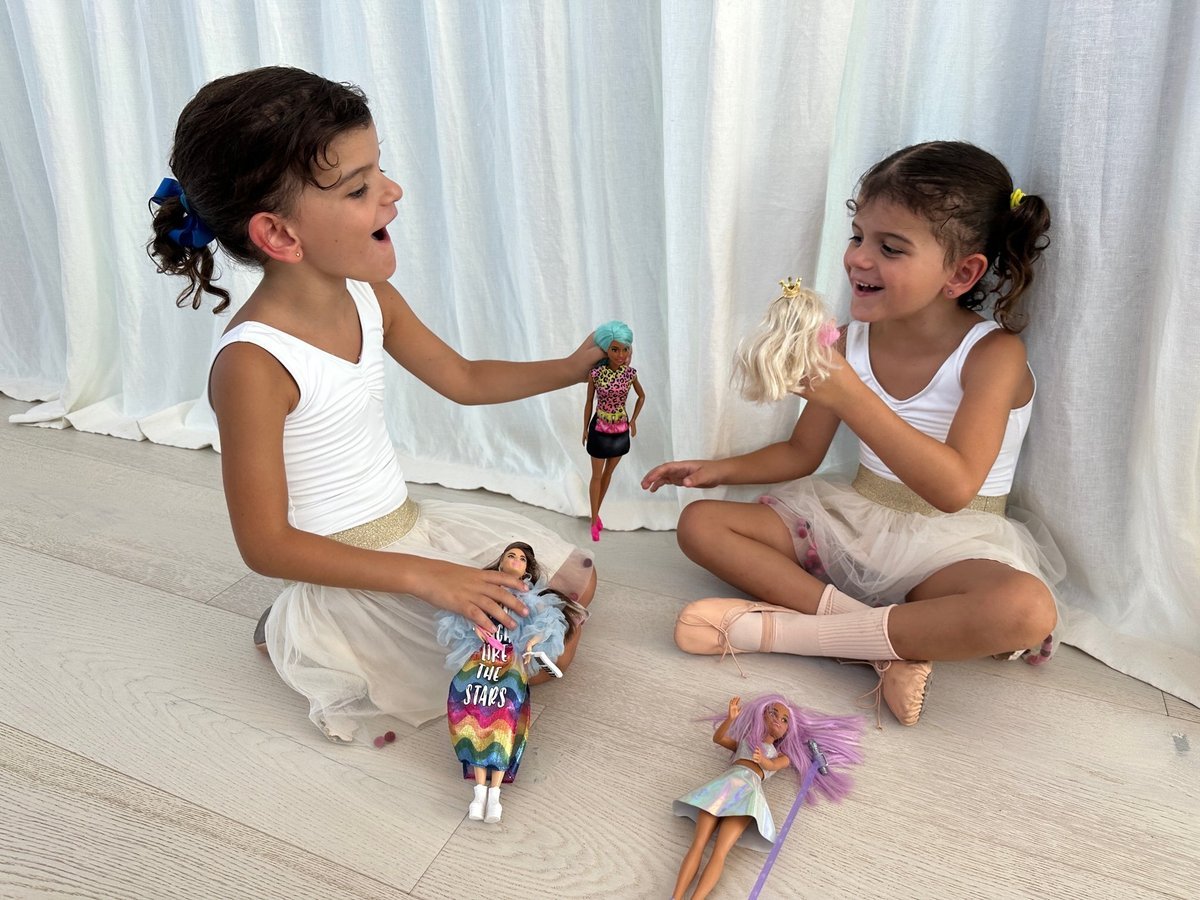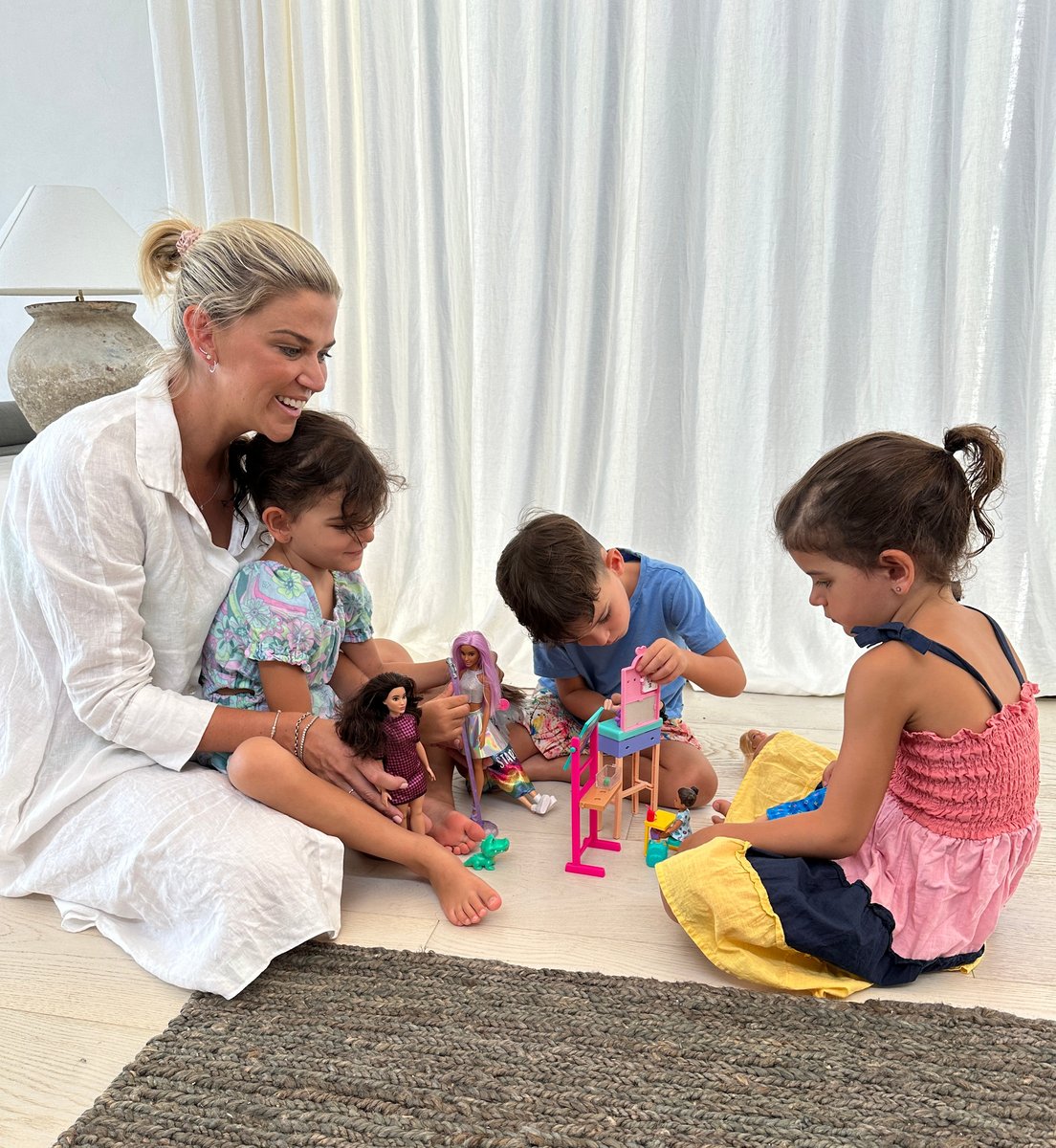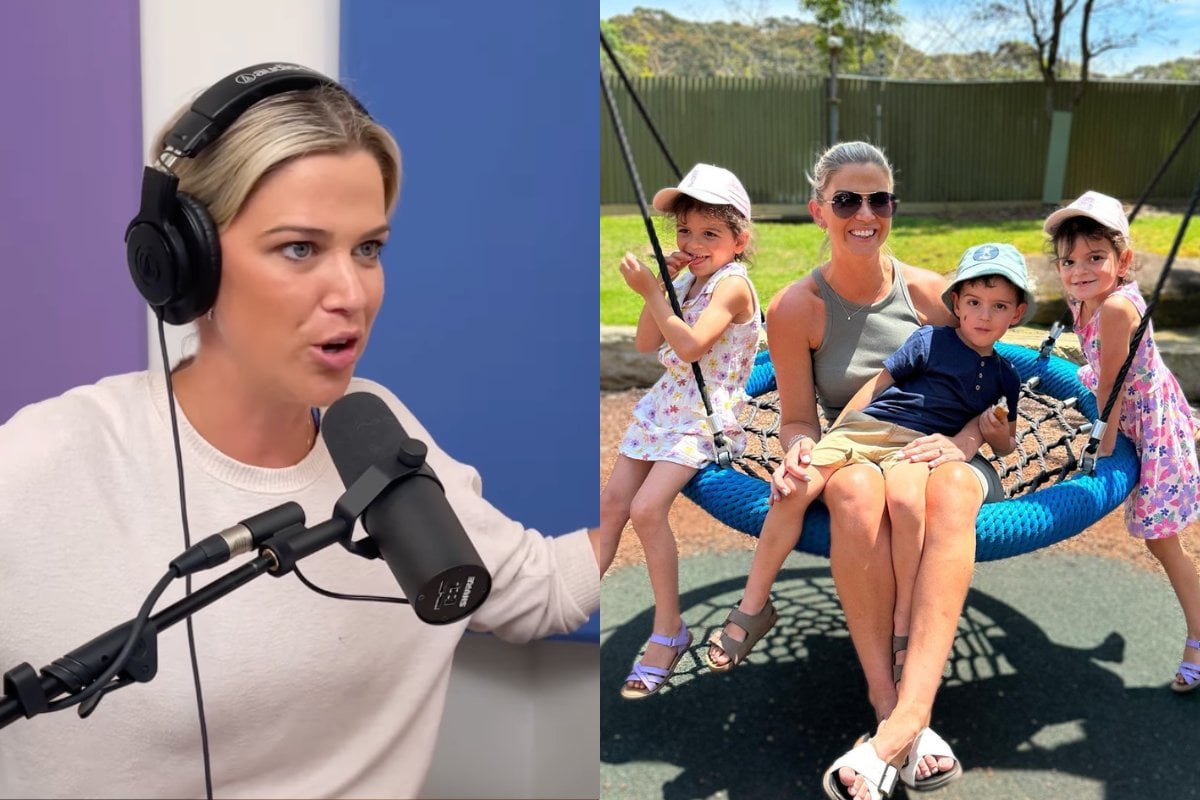
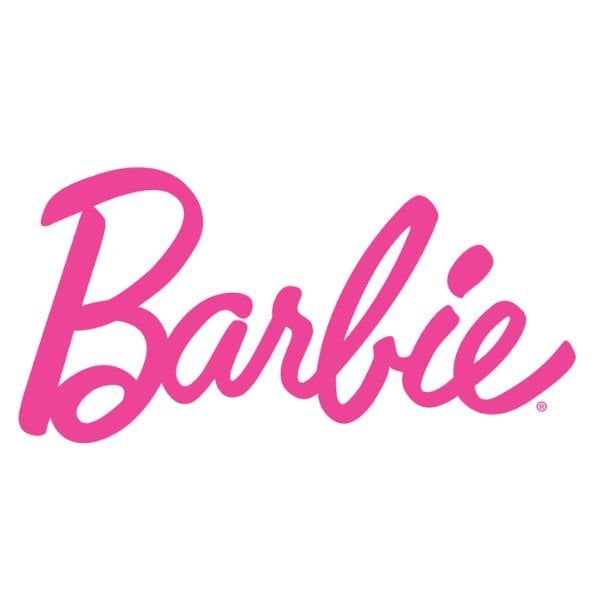
I’ve had the pleasure over the last 4 years to host Mamamia’s parenting podcast, This Glorious Mess alongside fellow toddler parent, Leigh Campbell.
I know I can speak for both of us in saying that hosting a parenting podcast by no means makes us parenting experts!
One really great perk of the job though, is that we get to interview and chat with *actual* qualified experts for the show, and essentially accumulate all of that golden knowledge and advice they share with us, to take on our merry way and store in our parenting arsenals.
We're always on the hunt for any tidbits to make this parenting gig a little less uncertain – particularly when we're trying to raise well-rounded, well-adjusted, kind, inclusive and resilient kids.
Here are the 5 most helpful things being a parenting podcast host has taught me so far about raising empathetic kids.
1. A tantrum is never really actually about that specific thing.
Parenting has taught me to read between the lines.
When my little ones have had meltdowns… it’s very rarely about what they are melting down about. The wrong colour cup, their ice-cream is too cold, their swimmers are wet while swimming.
As a parent, it can be so challenging to not get completely frustrated by the complete irrationality of these big feelings, but that’s exactly what they are. Big feelings. Feelings that, for whatever reason, they’re unable to articulate or manage so it can come out as an emotional overload.
Back when we were kids, tantrums were considered kids being ‘naughty’, but I think parenting patience has evolved. We are learning to look beyond our own triggers and show more empathy for their underlying feelings and what they’re experiencing.


